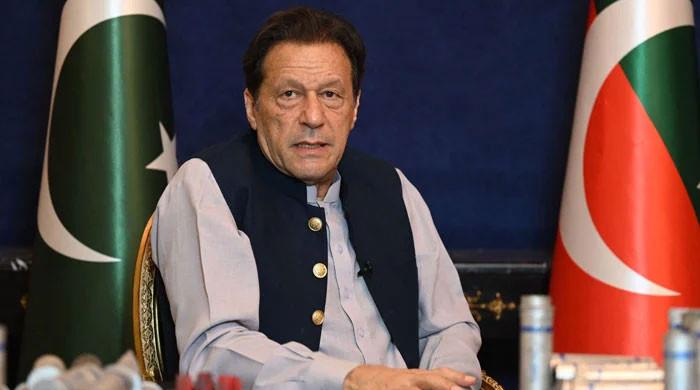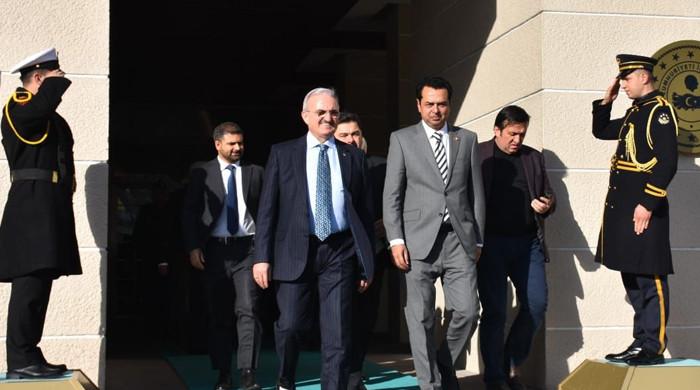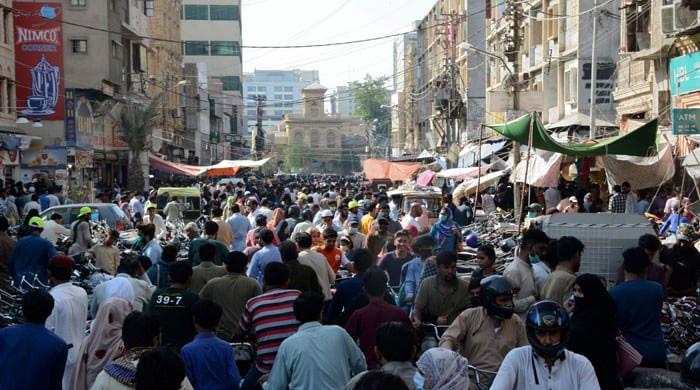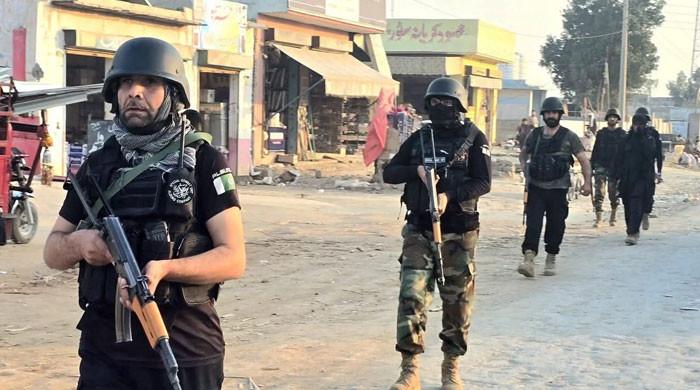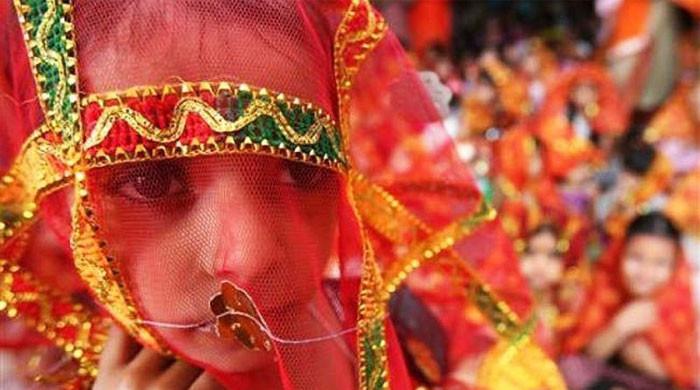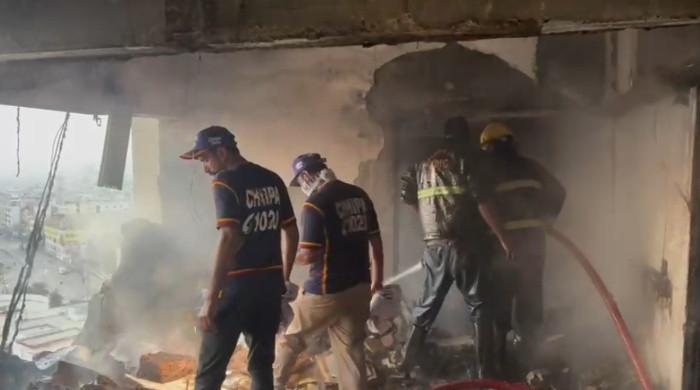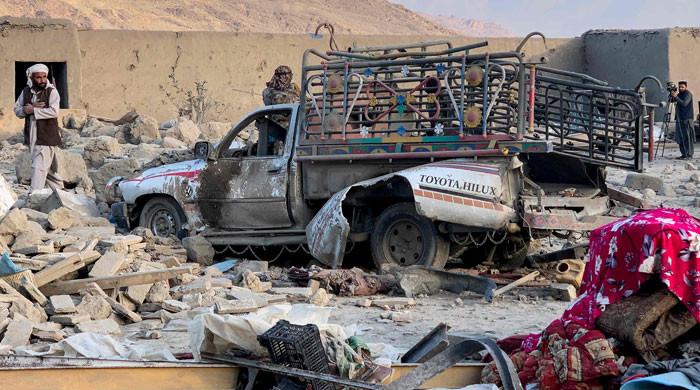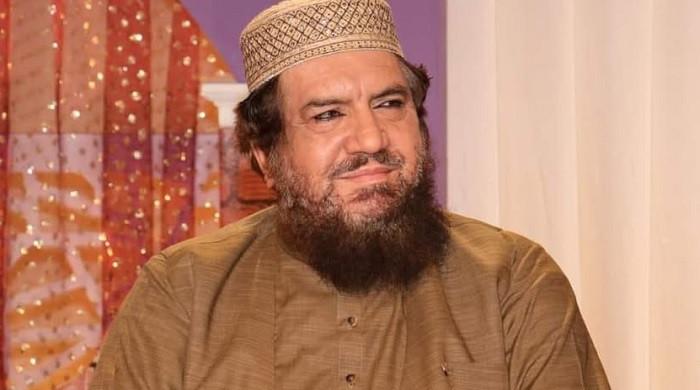Children in back rows took brunt of Mohmand mosque tragedy
Many among the dead were boys praying in the back rows who were buried under the debris of the collapsed verandah
September 18, 2016
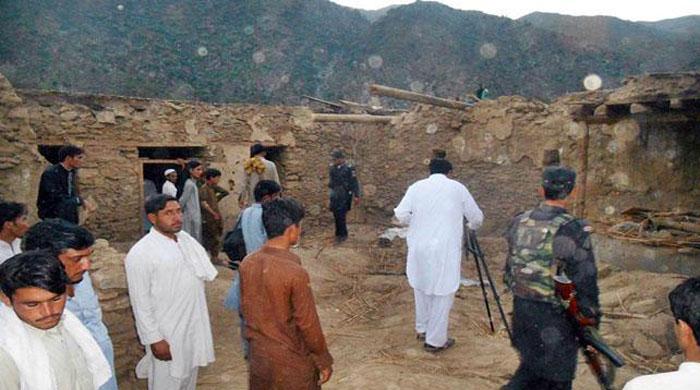
PESHAWAR: As the death toll in Friday’s suicide bombing at a mosque in Mohmand Agency climbed to 36 on Saturday, it emerged that many among the dead were boys praying in the back rows who were buried under the debris of the collapsed verandah adjacent to the mosque’s main room.
“As is the norm in our mosques, the elders were in the front rows in the single room of the mosque while the children were in the back rows in the verandah. When the verandah collapsed due to the impact of the explosion caused by the suicide bomber, the debris fell on the children, mostly teenagers,” Mohmand Agency’s political agent Mahmood Aslam Wazir explained when reached on phone.
Speaking to The News from Ghallanai, the headquarters of the Mohmand Agency, he said those praying in the room mostly survived as its roof didn’t collapse. “A local elder told us he was praying when the bomber shouted Allah-o-Akbar and blew himself up to trigger the explosion. He said he lay on the floor as he feared that a second explosion will take place. He survived as there was no further explosion and the room of the mosque didn’t fall,” the political agent recalled.
He said the death toll was 28 on Friday, but it kept rising during the night and on Saturday. “The injured were shifted to the nearest public hospital in Bajaur Agency’s headquarters, Khar, as it isn’t very far from Anbar. Some of the critically wounded were taken to Peshawar,” he added.
Mahmood Aslam Wazir, who served as deputy commissioner in the conflict-hit Swat district prior to his posting to Mohmand Agency, argued that there had been no threat or information about the likelihood of an attack in Anbar as it was known as a generally peaceful area. However, he conceded that the Utmankhel tribe inhabiting the area had formed a tribal Lashkar a few years ago to defend their villages from the militants and support the government’s anti-terror campaign.
It may be added that the Afghanistan-based militant group, Jamaatul Ahrar, which claimed responsibility for the suicide bombing targeting the mosque, had mentioned this fact in its statement and warned the members of the tribal Lashkar, or armed militia, to surrender to the militants or face further attacks. The Jamaatul Ahrar, which broke away from the Maulana Fazlullah-led Tehreek-e-Taliban Pakistan (TTP) under the leadership of Abdul Wali aka Omar Khalid Khorasani, draws most of its support from Mohmand Agency. Its leadership also hails from the Mohmand Agency, a mountainous and under-developed area with little rain-fed cultivation and few job opportunities. Its only noteworthy export is exquisite white marble obtained in a rudimentary manner from the well-known Ziarat mine.
According to Mahmood Aslam Wazir, the government has decided to give one job each in the Levies force to every family that lost a member in the suicide bombing. “The families that don’t have an able-bodied male for recruitment would receive regular payment of money for expenses. The families of the martyred and injured persons were also paid cash compensation within 10 hours of the incident,” he said.
He added that the civil and military authorities would rebuild the mosque in Payekhan village in Anbar that suffered heavy damage in the explosion.
The mosque was built with stones as is normally done in the area.
It didn’t have a sturdy structure and was unable to sustain the impact of the explosion caused by the suicide bomber who had tricked the faithful by pretending to be a worshipper.
As the Friday prayers are always attended by a higher number of people, the villagers may have thought that this unfamiliar person in the mosque was someone’s guest.
-- Originally published in The News




